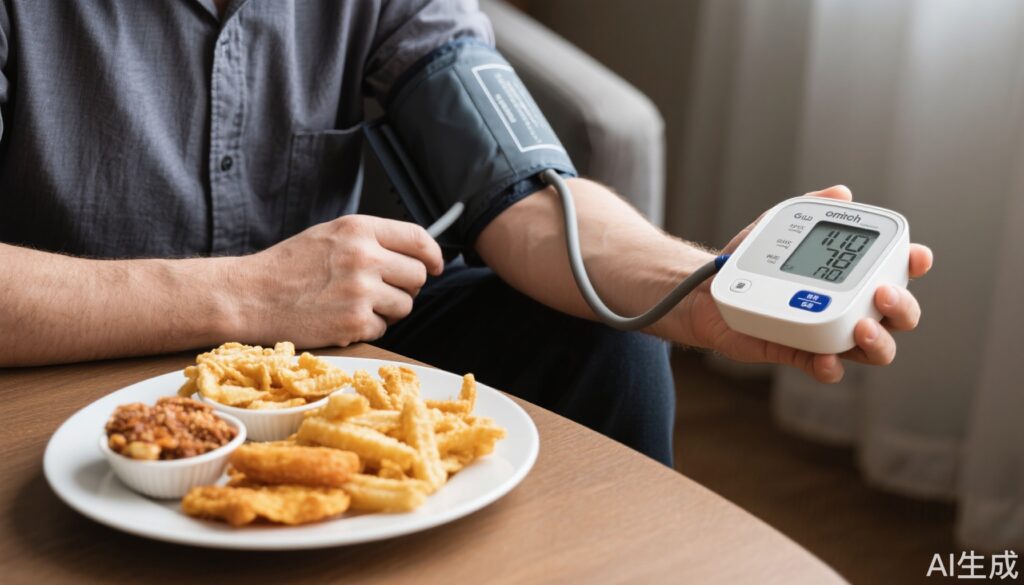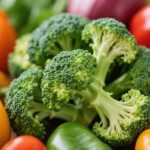Introduction
Hypertension, commonly known as high blood pressure, is a prevalent chronic condition affecting millions globally. For many individuals, managing this condition involves long-term use of antihypertensive medications. While these medications are crucial for controlling blood pressure and preventing complications, their efficacy can be influenced by dietary choices. Understanding which foods to avoid can help maximize the benefits of these medications and ensure better health outcomes.
Scientific and Clinical Evidence
Salt and Sodium Intake
Excessive sodium consumption is a well-documented contributor to hypertension. Studies have shown that increasing daily sodium intake by as little as 5–6 grams can elevate systolic blood pressure by 3.1–6.0 mmHg. This rise in blood pressure not only strains the heart and kidneys but also creates a cycle where sodium retention further exacerbates hypertension.
High-Sugar Foods
Added sugars, such as those found in sweetened beverages and desserts, can directly affect vascular health. They trigger high blood sugar levels, damage endothelial cells in blood vessels, and lead to insulin overproduction. This insulin surge can constrict blood vessels, resulting in elevated blood pressure and increased risk of cardiovascular diseases.
Fatty and High-Cholesterol Foods
Consuming high-fat foods, especially those rich in saturated fats, can result in abnormal lipid metabolism, leading to hyperlipidemia (high blood lipid levels). This condition increases blood viscosity, requiring higher pressure to circulate blood effectively. Additionally, fatty deposits can accumulate along arterial walls, causing atherosclerosis and further complicating blood pressure management.
Caffeinated Beverages
Caffeine, found in coffee and certain teas, stimulates the sympathetic nervous system, potentially causing increased heart rate and blood pressure. For individuals on antihypertensive medications, excessive caffeine intake can hinder the medications’ effectiveness.
Misconceptions About Food and Medications
Some foods, though generally considered healthy, may interfere with the pharmacological activity of antihypertensive drugs. For instance:
– **Milk:** Can form a coating around medication, preventing proper absorption.
– **Grapefruit:** Contains furanocoumarins that inhibit liver enzymes responsible for drug metabolism, increasing the risk of medication overdose.
Correct Health Practices
To ensure optimal medication efficacy:
– Limit sodium to less than 2,300 mg per day.
– Opt for natural sugars from fruits, avoiding processed sweets.
– Prefer unsaturated fats and avoid trans fats.
– Moderate caffeine intake, consuming no more than 200 mg daily.
– Maintain a minimum one-hour gap between medication and milk consumption.
– Avoid grapefruit when on antihypertensive drugs.
Expert Recommendations
Cardiologists and nutritionists emphasize the importance of a balanced diet rich in vegetables, lean proteins, and whole grains. Regularly consulting healthcare professionals regarding medication interactions with dietary components is also recommended.
Conclusion
Diet plays a pivotal role in managing hypertension, especially for individuals reliant on antihypertensive medications. By avoiding certain foods and adopting healthier dietary practices, patients can enhance the effectiveness of their treatment plans and reduce risks of complications.
References
– “Dietary Sodium and Its Relationship to Hypertension,” Journal of Hypertension.
– “Impact of Added Sugars on Cardiovascular Health,” American Heart Association.
– “Interactions Between Grapefruit and Medications,” Clinical Pharmacology Insights.



